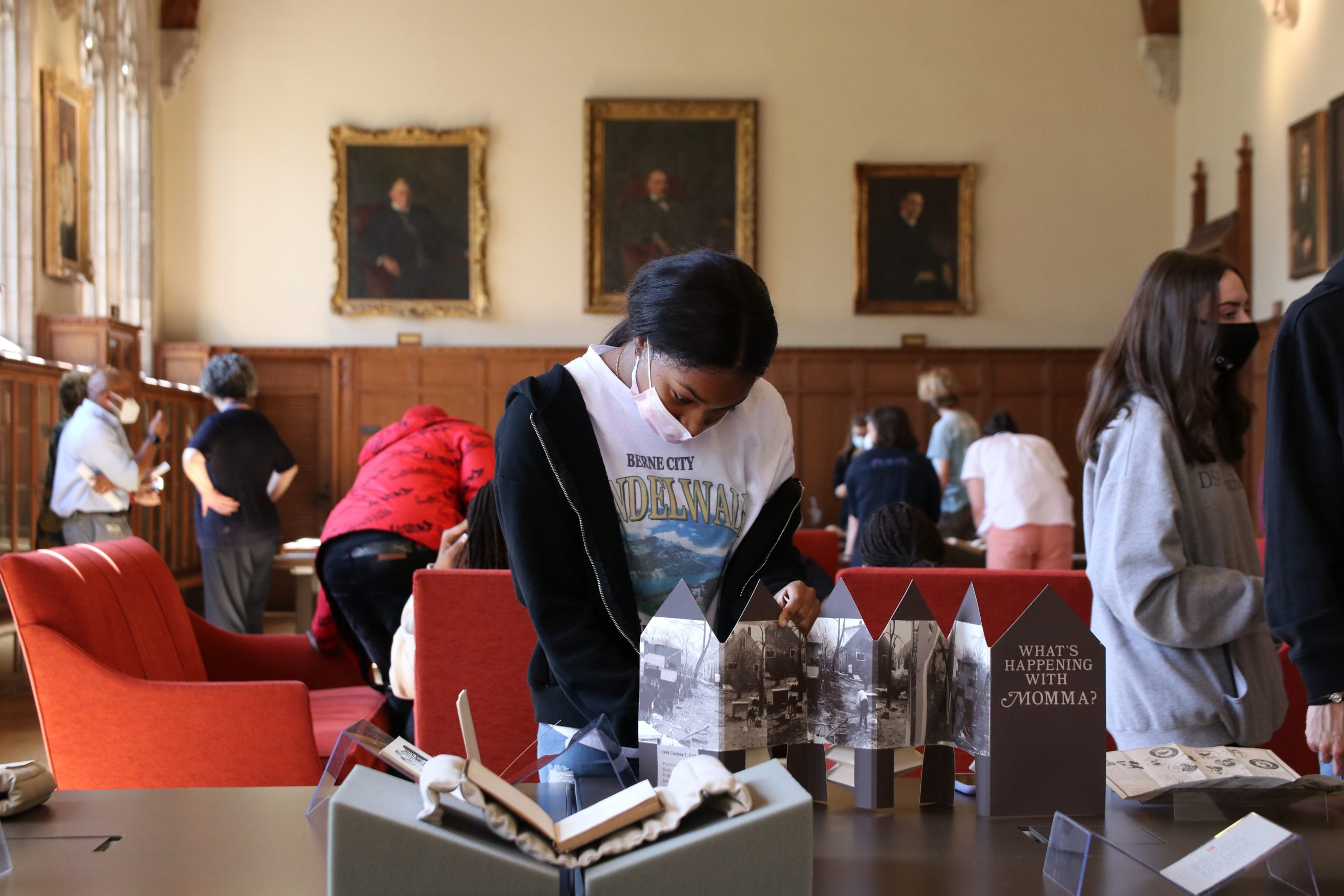
Post by Orilonise Yarborough, Intern, John Hope Franklin Research Center for African and African American History & Culture
This past April, the Rubenstein Library hosted an open house event we called, “I Got a Story to Tell: Black Voices in Print.” On display were a wide range of archival materials covering such topics as Durham’s Black history, pop culture, and literature, including a first edition of the Narrative of Sojourner Truth, flyers and photographs from the Mary Lou Williams Center for Black Culture at Duke, and romance novels written by voting rights activist and Georgia gubernatorial candidate Stacey Abrams under the pseudonym Selena Montgomery. Event organizers poured through the Rubenstein’s collections to locate materials we love and know well, and that illustrate the breadth of Black print materials here at Duke. Based on the sheer volume of material, this was no easy feat!
The Rubenstein Library is open to all, and this event was an opportunity to welcome the larger community outside of academics and researchers. Recognizing that academic libraries can seem intimidating and inaccessible to the general public, the event was designed to demystify the Rubenstein Library and show the multiple ways archival material can be utilized. While historical documents are static, the way we engage with them doesn’t have to be. The event was our own contribution to the current discourse on access to archives and collective histories, showcasing the possibilities that our materials and library spaces hold.
John B. Gartrell, Director of the John Hope Franklin Research Center for African and African American History & Culture noted that such events remind us of what makes archives special by letting people experience “the kind of metaphysical connectivity where you realize that this was held by someone fifty, seventy-five, one hundred years ago.” In these encounters, time collapses, and the experience of witnessing history becomes a shared experience between the living and the departed.
What’s next? “So many things,” according to Gartrell. “The potential for an event like this is endless.” The Rubenstein Library hopes to make it an annual event, much like Anatomy Day, an open house event every fall that draws on the History of Medicine Collections. With thousands of collections encompassing literature, art, diaries, scrapbooks and rare comics, Rubenstein staff will have the ability to investigate and share Black material culture in a variety of expressions and forms.



